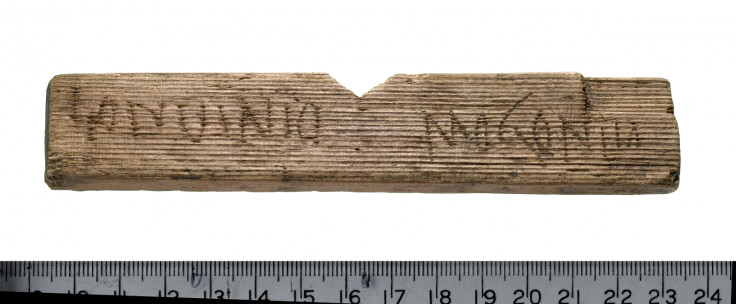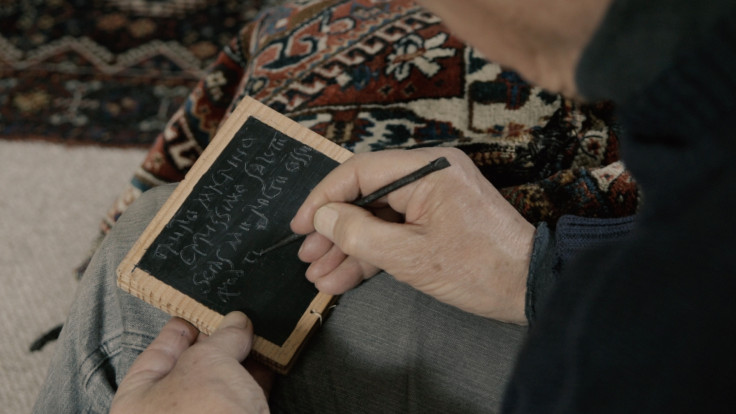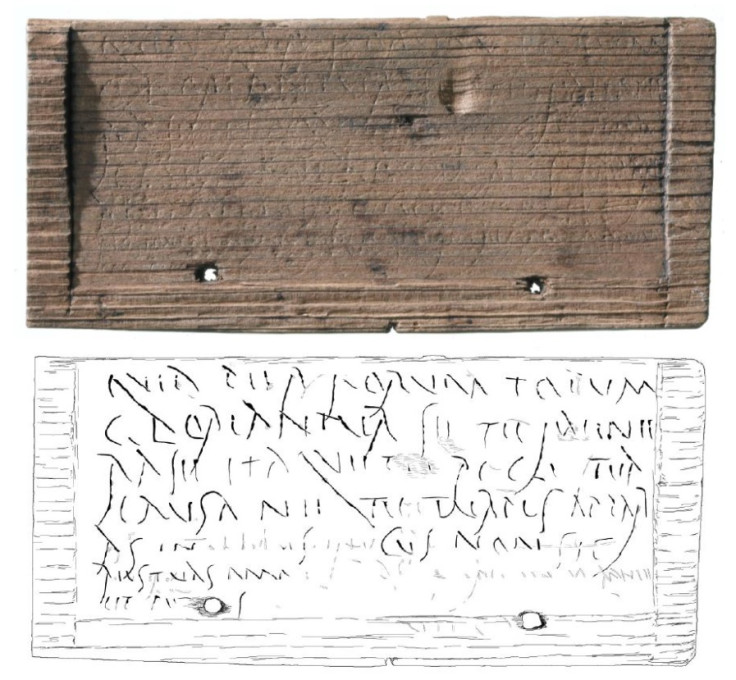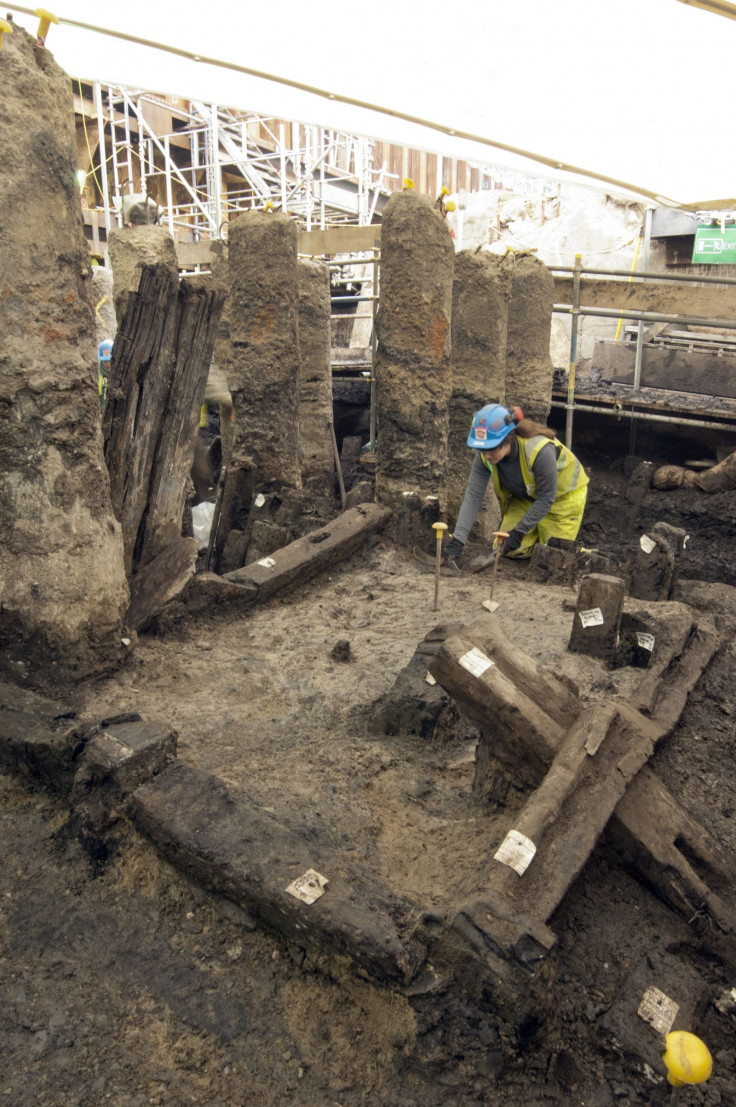Oldest handwritten documents in Britain shed light on London life under Roman rule
Over 400 waxed writing tablets dating to the first decades of Roman rule in Britain have been unearthed in London. The tablets, including the first hand-written Roman document ever discovered in Britain and the earliest reference to London, provide an insight into the lives of people living and working in the city almost 2,000 years ago.
The tablet collection was unearthed during excavations for Bloomberg's new European headquarters. In total, 405 tablets were discovered and 87 of these have now been deciphered by classicist and Latin expert Roger Tomlin.

Tomlin said: "The Bloomberg writing tablets are very important for the early history of Roman Britain, and London in particular. I am so lucky to be the first to read them again, after more than 19 centuries, and to imagine what these people were like, who founded city of London."
The rectangular tablets are made from wood with recesses cut out. These would then have been filled with blackened beeswax and the text would have been carved in using styluses. While the wax did not survive, inscriptions would sometimes go through it to scratch into the wood below – often leaving layers of text to be deciphered.
The tablets were preserved thanks to the wet oxygen-free mud of the Walbrook – a lost river that was eventually filled in so it could be built upon in the current City area of London. Sophie Jackson, archaeologist and director of the Museum Of London Archaeology (Mola), said the Walbrook mud works in a similar way to how volcanic ash preserved the ancient site of Pompeii.

Mola's Sadie Watson, site director of the dig, said the tablets were found scattered across the site with clear layers from the time periods they came from. Unlike many digs, where few artefacts are discovered, she said each archaeologist was finding something significant every day. "It was hugely tempting to try to decipher the tablets," she said, but added they were all taken away to be cleaned with a waxy substance then freeze dried to preserve them.
Multidirectional photographs were taken and sent to Tomlin, who begin trying to decipher the faint scratches. Among the tablets was the earliest reference to London ever discovered. Reading "Londinio Mogonitio", the tablet from between 65 and 80AD translates to "In London, to Mogontius" and would have been written just a few decades after the Romans established themselves in Britain (43AD).

The earliest tablet dates to 43-53 AD and relates to an ill-judged loan and advice as to how to handle the situation: "They are boasting through the whole market that you have lent them money. Therefore I ask you in your own interest not to appear shabby...you will not thus favour your own affairs."
Another tablet relates to trade between Verulanium (St Albans) and London. What is remarkable about this tablet is the date − 21 October 62 AD. This was just a year after both cities were largely destroyed by Queen Boudica. That trade between the two had been re-established shows how fast they bounced back after the uprising.

Nineteen of the tablets were found in just one room excavated during the dig. Included in these were a will and other legal documents, possibly relating to an army officer. While most of the tablets were found scattered across the site, the concentration of tablets in one room could be an indication of an office – potentially even the first law firm in Britain.
Jackson said: "We always had high hopes for the Bloomberg dig, situated in the heart of the Roman and modern city and with perfect wet conditions for the survival of archaeology, but the findings far exceed all expectations. The writing tablets are truly a gift for archaeologists trying to get closer to the first Roman Britons."
© Copyright IBTimes 2025. All rights reserved.





















